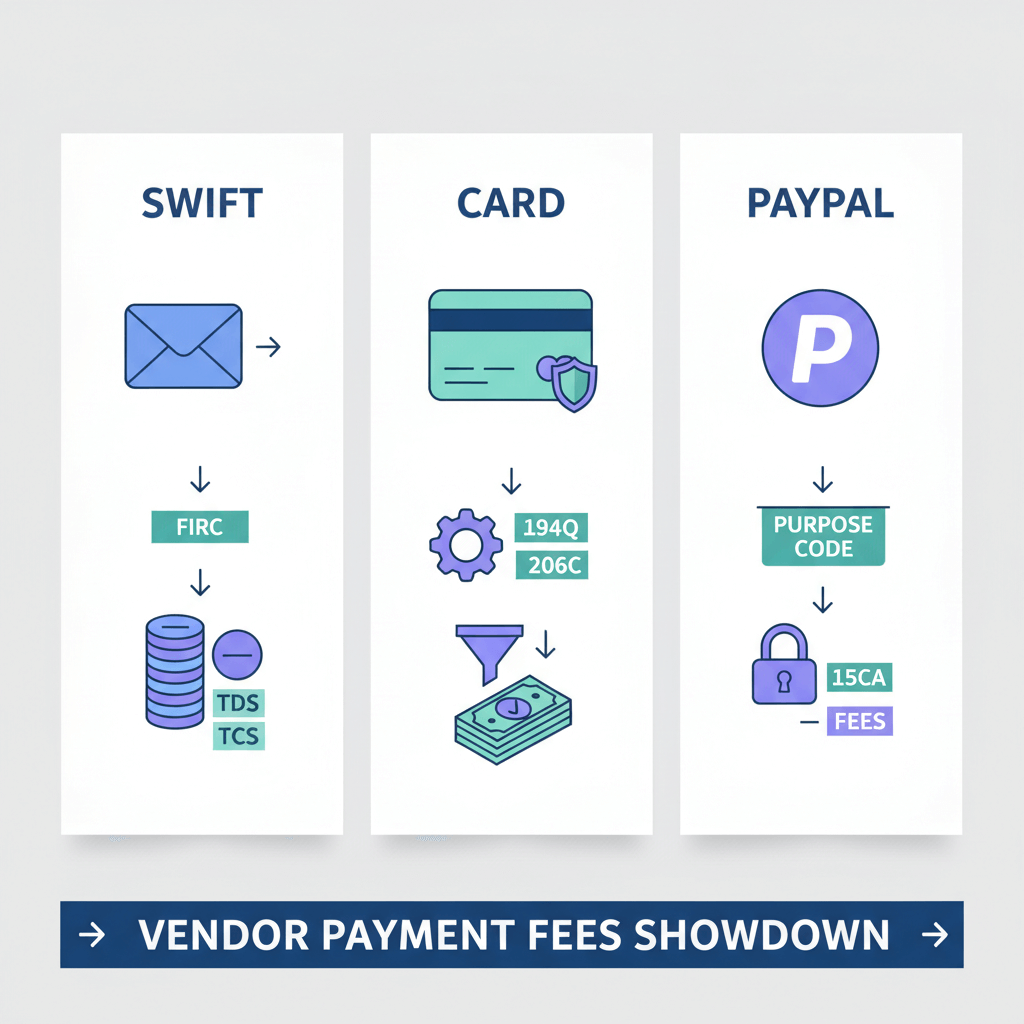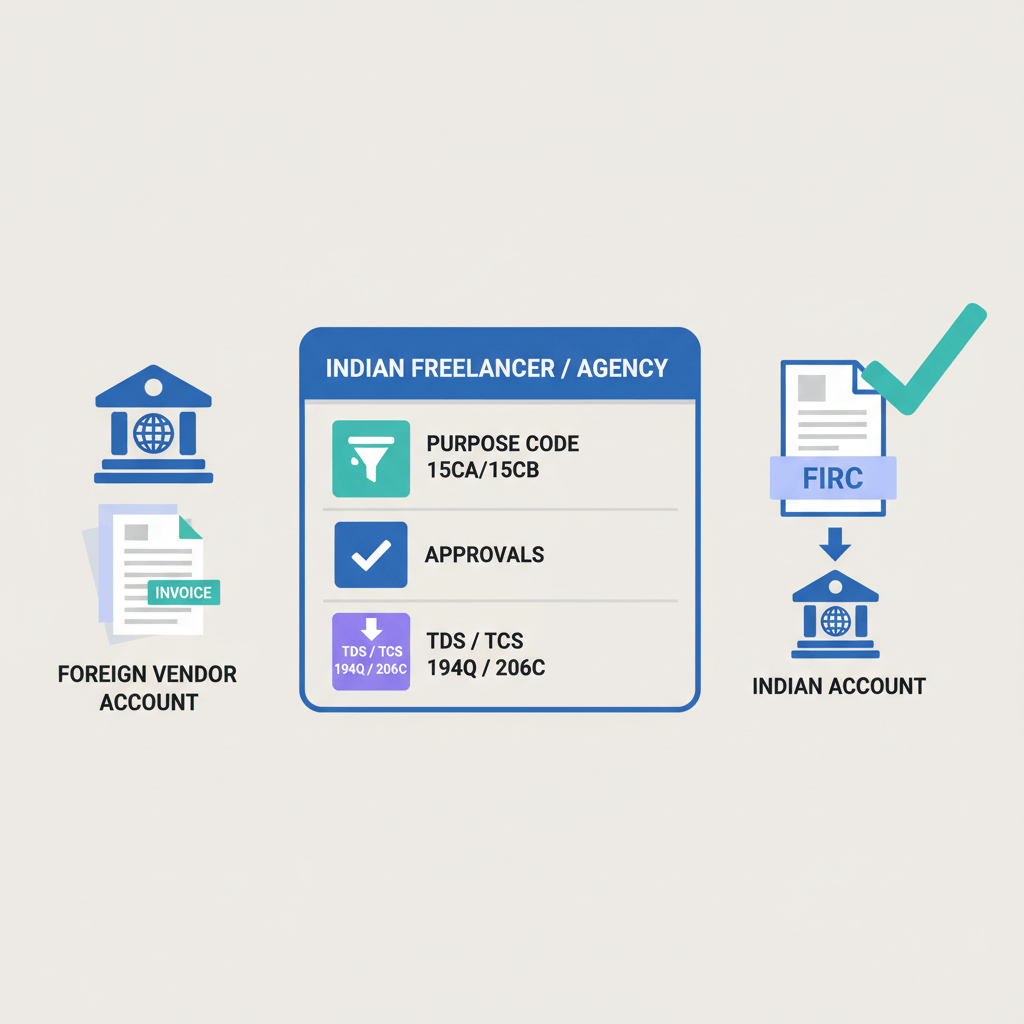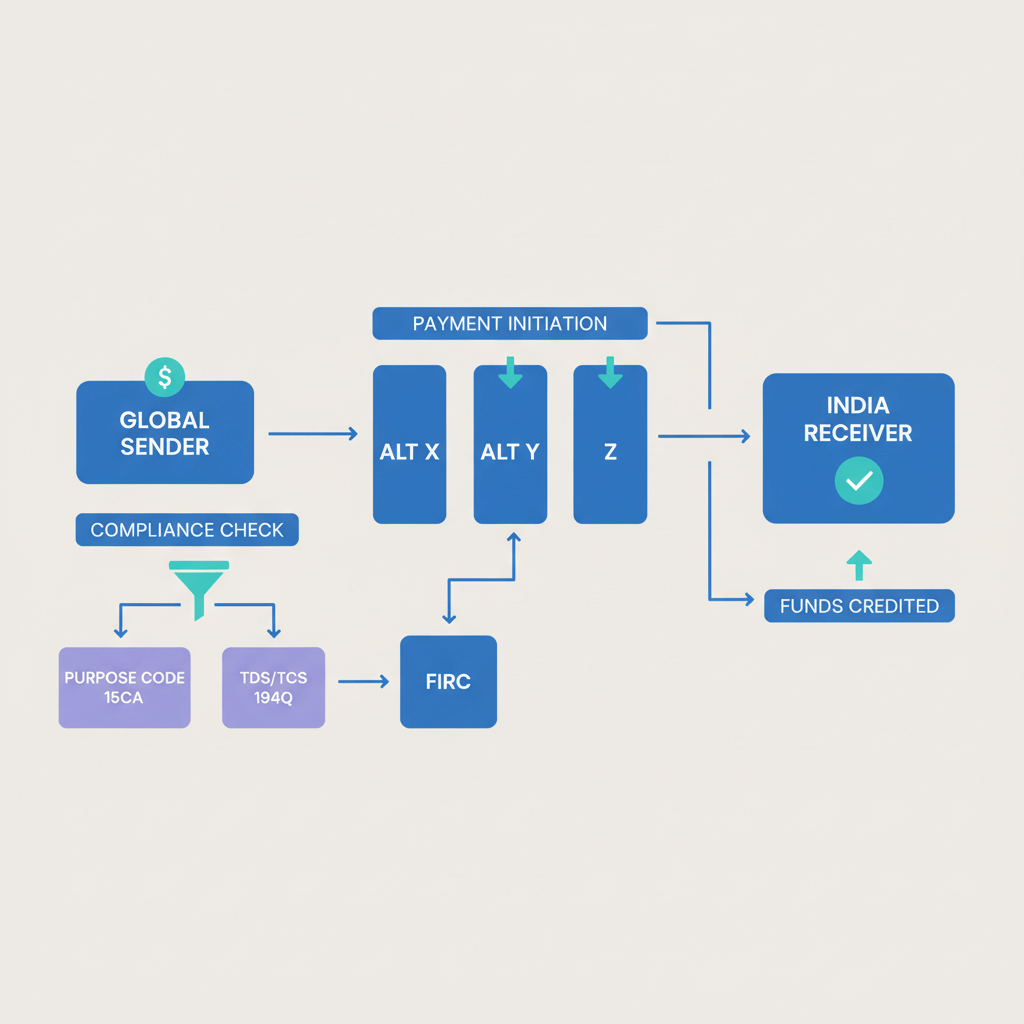When Finance Minister Nirmala Seetharaman announced a 20% hike in TCS on outward remittance in 2023, there seemed to be judgment, scrutiny, and shock in the financial sector.
With India handling a big chunk of remittances, in comparison to the world, slapping a 20% charge seemed rather too much. After much criticism, TCS on outward remittance is expected to fall back to 5% after the Budget 2025 is fully implemented.
Let’s find out what to expect from the new budget proposals regarding TCS on foreign remittance…
What is TCS on outward remittance?
TCS on outward remittance in India means that when someone sends money abroad, a part of that money is collected as tax by the bank or financial institution handling the transaction.
This rule was made to keep track of funds going out of the country and ensure taxes are paid. If the total amount sent by an individual is more than a certain limit in a year, the bank collects this tax at a fixed rate. It's important to check the latest foreign money transfer rules because they may change, and you can consult tax professionals or official guidelines for the most recent information.
TDS vs TCS on outward remittances
TDS (Tax Deducted at Source) and TCS (Tax Collected at Source) are two different concepts related to taxation in India, and they apply to outward remittances in distinct ways.
TDS (Tax Deducted at Source):
TDS works like this: when someone pays money, a certain amount of tax is taken out by the payer before giving the full payment. For sending money out of the country (outward remittances), TDS applies when a person or a company in India is paying someone who is not from India.
The main goal of TDS is to make sure that the government gets taxes on certain types of income right when the payment is made.
TCS (Tax Collected at Source):
TCS is a bit like a tax tip during a purchase – when you buy something, a portion of the money goes to GST taxes. Now, when it comes to sending money abroad (outward remittances), TCS is there to keep an eye on and manage the flow of funds. It kicks in when someone is sending money to another country.
But the authorized dealer, usually a bank or a financial helper in charge of the money transfer, collects a small tax at a fixed rate on the sent money if it's more than a certain amount. It's like a way of making sure everything is in check when money is going outside of India.
Is TCS on outward remittance an additional tax?
No. TCS on outward remittance is not an additional tax.
You can use the money deducted as TCS to offset your tax liability when filing an income tax return (ITR). If you don't have any tax dues, you have the option to claim a refund for the TCS amount. It's crucial to understand that TCS is not an additional income tax, but it may create a cashflow challenge as the funds could be held up until you receive the refund. The increased TCS rate of 20% raises the likelihood of cash-flow difficulties for the remitter, potentially leading to a year or more waiting period before filing the tax return.
What to expect on the new TCS on outward remittance rule 2025?
To obtain the most accurate and current information on TCS rules for 2025, we recommend checking the latest notifications, circulars, or guidelines issued by the Income Tax Department of India or consulting with tax professionals who stay abreast of regulatory changes.
It is expected that the current 20% TCS on outward remittance will be reduced to the earlier rate of 5%. This will greatly help businesses and individuals who'd have 20% of their funds held in taxes for the financial year.
So is TCS applicable to outward remittances?
Depends on the purpose of outward remittance. In case the purpose is business, TCS is not applicable. Outward remittances refer to the transfer of funds from an individual or business in one country to another. The Reserve Bank of India (RBI) regulates outward remittances, and individuals or businesses must adhere to the guidelines set by the RBI.
While TCS does not impact outward remittances, it is essential to stay informed about any changes in tax regulations, as tax laws may undergo amendments.
Is TCS applicable on foreign remittances for business purposes?
As per the earlier regulations, TCS on outward remittances was applicable on certain business transactions where the amount being remitted exceeds a specified threshold. The rate of TCS and the threshold limit could vary based on the nature of the remittance and the provisions of the Income Tax Act.
As for, business travel expenses, including cross-border payments for travel services, these are usually subject to regular income tax regulations. Employers and businesses may need to comply with tax rules related to deductions, reimbursements, and reporting of such expenses. The applicability of tax regulations can also depend on the specific nature of the expenses and the relevant tax laws in force.
How to avoid 20% TCS on outward remittance?
Avoiding TCS (Tax Collected at Source) is not advisable, as it is a legal obligation imposed by tax authorities on specific transactions. Attempting to evade or avoid TCS may lead to legal consequences and penalties.
Suppose you are concerned about the impact of TCS on your financial transactions. In that case, it's essential to understand the nature of the transactions to which TCS applies and explore legitimate ways to manage your tax liability. Here are some general tips:
- Understand TCS Applicability: Know the transactions that attract TCS. TCS is usually applicable on specified transactions, such as the sale of goods, foreign remittances, and more. Understanding the applicable rules is crucial.
- Keep your remittances below INR 7L: Transactions below INR 7L are exempt from TCS, so in order to avoid paying TCS, keep your remittances for each financial year below 7 Lakhs.
- Exemptions and Thresholds: Be aware of any exemptions or thresholds that may apply. For certain transactions, TCS may not be applicable up to a specific threshold amount.
- Provide PAN/Aadhaar: Ensure that you provide your Permanent Account Number (PAN) or Aadhaar details for transactions where TCS is applicable. Providing accurate information helps in proper tax reporting.
- Claim Refunds: If excess TCS has been deducted, you can claim a refund while filing your income tax return. Keep proper documentation and receipts to support your claim.
- Consult with Experts: To grasp the specific impact of TCS on your transactions, seek advice from tax professionals or financial advisors. Their insights can be customized to your unique situation.
Is LRS applicable for companies?
The Liberalized Remittance Scheme (LRS) in India primarily applies to individuals.
For companies and businesses, there are separate regulations and guidelines governing foreign exchange transactions.
Extra Pointers for TCS on outward remittances:
- The TCS will be deducted by the bank or authorized dealer when initiating the transfer. Following the transaction, the bank will issue a TCS certificate, which is important for seeking a refund of the TCS amount.
- Refunds for specific categories like educational or medical remittances can be pursued through an NRI account or transfers facilitated by a Forex dealer with a TCS waiver.
- It's essential to plan your remittances thoughtfully. If you foresee sending more than Rs. 7 lakh in a year, consider distributing your remittances among family members or friends to stay within the limit and prevent exceeding it.
What is the limit of LRS for companies?
LRS is not applicable for companies, hence this question is not relevant.
The scheme allows resident individuals to remit a certain amount of money annually for permissible current and capital account transactions, including investments in financial instruments and real estate outside India.
For companies, the guidelines and regulations regarding foreign exchange transactions, including remittances, are typically distinct.
If you are looking for the latest information on the LRS limits or guidelines for companies, check with the Reserve Bank of India (RBI) or consult with financial experts who can provide up-to-date and specific information based on the current regulatory environment. Regulations may change, and it's important to ensure compliance with the latest guidelines when dealing with cross-border transactions for companies.
Who is exempt from TCS on foreign remittance? Are companies exempted from TCS on outward remittance?
Exemptions from TCS on foreign remittance may include:
- Authorized Dealers: Transactions conducted by authorized dealers, such as banks and financial institutions, may be exempt from TCS.
- Certain Financial Institutions: Transactions made by specified financial institutions for specific purposes may be exempt.
How to Report TCS Collected on Foreign Remittances in Your Income Tax Return
Here are step-by-step instructions on how you can report and collect a refund on TCS collected on foreign remittances:
Step 1 - Gather Documentation:
Obtain the TCS certificate from your bank and keep transaction records.
Step 2 - Select the Correct ITR Form:
Individuals: Use ITR-2 or ITR-3 depending on your income type.
Companies: Use ITR-6.
Step 3 - Claim Refund or Adjustment:
If TCS exceeds your tax liability, claim a refund. If it’s less, adjust it against your total tax payable.
Step 4 - Submit Your Return:
Review your entries, then file your return online through the Income Tax e-filing portal and e-verify it.
FAQ: TCS on Foreign Remittance
1. Will TCS apply to foreign currency transactions through online platforms?
Yes, TCS applies to foreign currency transactions conducted through online platforms, including e-commerce sites and digital payment systems. This includes transactions involving foreign merchants or platforms that use Dynamic Currency Conversion (DCC).
2. If I make a foreign remittance and then cancel it, will the TCS amount be refunded?
TCS collected on a canceled foreign remittance is generally not refunded if the reversal happens after the original transaction date. However, you can claim a TCS credit when filing your Income Tax Return (ITR), provided the TCS amount was not refunded by the bank.
3. Will TCS be applicable to foreign investments or equity purchases?
TCS is not applied to foreign investments or equity purchases. These transactions are governed by different tax rules and reporting requirements.
4. Are there any specific limits or thresholds for TCS on foreign remittances?
TCS is applicable on foreign remittances exceeding ₹7 lakh per financial year. Transactions below this threshold are generally exempt from TCS.











